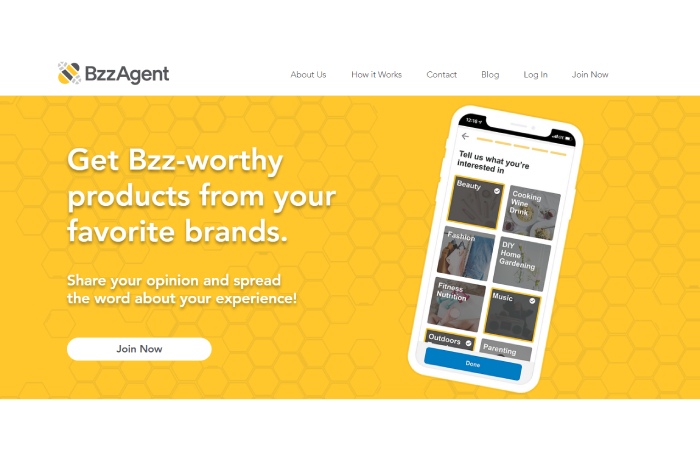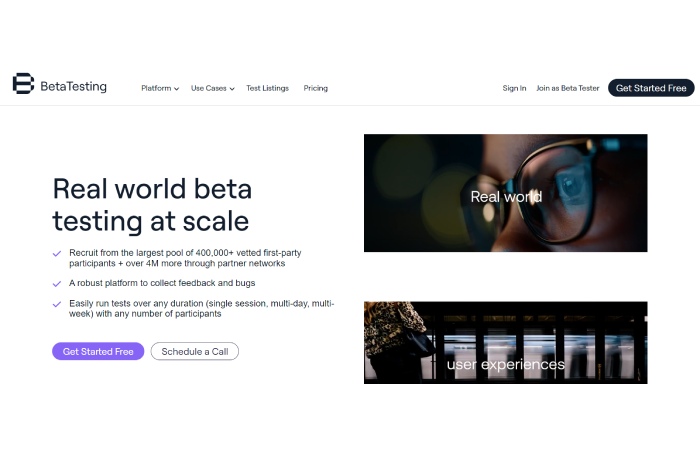Ensuring product quality is one of the most vital business tasks today. After all, their reputation depends on it. If consumers are satisfied with a company’s products, they are more likely to recommend it to others, and vice versa. Because of this, product tester jobs are becoming increasingly popular. Product tester jobs
Have you thought about becoming one? This is a great way to earn extra money wherever you are. Moreover, you can do this while paying attention to other things.
So, can you provide an accurate and detailed review of the product? If so, then this would be perfect for you. You’re no doubt wondering what kind of work you can start right now.
In this article, we’ll take a closer look at what each of these jobs involves to make sure they’re legal. But first, what does the job of a product tester involve?
What is the job of a product tester?
A product tester is a person hired by a company to evaluate its product and its capabilities. The individual is then required to provide feedback or any useful information about the product, which is then used to develop and recover the product, usually before it is released.
As a product tester, you describe your experience with a particular product to the company and give your opinion accordingly. Also, remember that in most (if not all) cases, you will need to keep the research confidential.
It’s a really simple job that offers some benefits. One of them is early access to the product even before its release. Moreover, many brands allow their testers to keep the product even after testing. On the company’s side, product testing helps ensure quality control and reputation management.
Looks good, right? If so, consider the following product tester jobs you can start right now. And yes, they are all legal.
5 Legal Product Tester Jobs in 2024
1. JJ Friends and Neighbors Product Testing Work
JJ Friends and Neighbors is a reputable company that invites people to try some products before anyone else and share their opinions and feedback. Privileges? Besides getting early access, as mentioned above, this company allows you to keep the rest of the product. Moreover, they still send monetary compensation. Interested? All you have to do is visit their website, register, and follow the prompts. But before that, consider the following details.
Additional Details
- The minimum age to apply is 18 years.
- Testing of JJ Friends and Neighbor products is limited to persons residing in the United States.
2. BzzAgent

BzzAgent from PowerReviews is another firm that invites applicants to try samples and provide their honest reviews. Once you have used and tested the product, your review must follow the posting instructions that BzzAgent will email you.
By following the instructions, you’re more likely to be invited to more campaigns, which means more free products. Here are the main details of how this product test works:
Additional Details
- Available to residents of Canada, USA, and UK only.
- Unlike JJ Friends and Neighbors, testers do not get paid. However, you can keep the products for yourself.
3. Beta testing

Beta testing is one of the greatest product tester jobs on this tilt in terms of influence, as it not only offers cash pay but is also available in over 150 countries. Founded in 2012, the company currently employs more than 350 thousand testers around the world.
This is useful because it allows businesses to find testers for their products. As a tester, you can take part for free. Here are other key details you need to know before applying:
Additional Details
- The minimum age to participate is 18 years.
- Beta testing invites testers for a change of products, including apps and websites.
- You will need to create a profile where you select your interests. The test assignments you receive are based on your interests.
4. User testing

User testing is another reliable product testing job you can apply for. Like beta testing, it pairs testers with brands that seek people’s feedback on their products instead of using automated testing tools. Here are the details and requirements for becoming a user tester.
Additional Details
- When you apply, you will be required to take a practice test of no more than twenty minutes.
- Your device must meet the requirements listed here. Additionally, it would help if you had a microphone for paid tests.
- You will also need a working PayPal account to pay.
5. Home Tester Club

Home Tester Club is an additional great product testing stage that allows you to get free products. Yes, just like with BzzAgent above, you don’t get any cash rewards, but you do get to keep the products. And this, in a sense, allows you to save money. So, without further ado, here are the details:
Additional Details
First, you need to take a survey to ensure that you are an ideal tester for the said product.
When you receive your product to test, a flyer with testing instructions will be included. Follow the instructions, and you’re done.
Vacancies in the Home Testers Club are limited to twenty-seven countries only.
What Are The Basic Requirements For A Product Tester?
So far, we have seen many benefits of being a product tester. But what are the requirements? The good thing is that you don’t need any degree or certification to qualify for a job as a product tester jobs. As long as you live in an accessible country, everything is fine.
However, you must have knowledge and experience using the product you want to try. How will this help? Think about it: you’re a guy who’s been asked to try out a makeup kit. Of course, you will never know the criteria for evaluating a product. Thus, your review will be unusable to the company.
For this reason, when creating your profile on any of these stages, choose products that you regularly use or know about. This will allow you to become a valuable product tester for manufacturers.
Skills And Qualifications Of Product Testers
The role of a product tester is multifaceted and requires a combination of specific skills, qualifications, and personal attributes. Here’s a breakdown of the key elements:
Necessary Skills
- Attention to detail: Perhaps the most important skill for a product tester. This includes identifying minor problems or differences in a product that may affect its functionality or customer satisfaction.
- Communication skills: Testers need to be able to connect their findings effectively, usually through written reports and feedback forms. Clear, concise, and unmistakable communication is essential to convey your observations to the development team.
- Analytical Skills: Ability to analyze product performance and identify any deviations from expected results. This includes understanding the product specifications and identifying any discrepancies.
- Technical skills (for some products): Particularly relevant for software, microchip technology, and specialty product testers, who often need to appreciate the technical aspects of the products they test.
Educational or Technical Qualifications
- Varies by industry: For example, software testers may require a background in computer science, while medical equipment often involves knowledge of biomedical engineering or related fields.
- Certificates: Specific certifications may be useful in some areas. For example, software testing certifications such as ISTQB can be useful.
- General education: Although many product testing positions do not require an advanced degree, a high school certificate or equal is often the minimum requirement.
Desirable Characteristics
- Patience and persistence: Difficult can be a repetitive and delicate process, requiring the ability to remain focused and thorough for long periods.
- Critical thinking: The aptitude to think logically about problems and come up with reasonable solutions is important, especially when identifying potential issues with a product.
- Flexibility: Products and testing environments can vary greatly, so it’s important to be adaptable and learn quickly.
- Goal: Maintaining an objective perspective when testing products is essential to providing honest and accurate feedback.
- Curiosity and a keen eye for novelty: Attention to how products work and how they can be improved can greatly influence the quality of feedback and suggestions provided.
Product testers come from a variety of backgrounds. Still, the key skills and characteristics that define a successful tester include attention to detail, good communiqué, analytical thought, and a patient and objective approach to their work. While specific experiences may vary by industry, the basic skills and characteristics are largely the same across different types of product testing.
Advantages and Challenges Of Working As A Product Tester
Working as a product tester can be a fun and rewarding role, but it comes with its tests. Here’s a look at both sides of the coin:
Benefits of working as a product tester
- Access to free or sale products: One of the immediate benefits is the ability to receive products for free or at a discount. This may be especially attractive to testers of consumer products, technology, or beauty products.
- Contribution to product improvement: Testers play an important role in determining the final version of products. It’s nice to know that your feedback helps improve the quality, functionality, and user satisfaction of the product.
- Variety and flexibility: Product challenges can offer a lot of variety, exposing testers to new and upcoming products. For many, especially freelance testers, there are also flexible hours and the ability to work from home.
- Gaining Experience and Skills: This is a great way to gain valuable skills and experience, especially in the areas of critical thinking, analytical skills, and attention to detail. This experience can be useful for career advancement.
- Understanding of new trends and technologies: Testers often get the first glimpse of the latest trends and technologies, allowing them to stay abreast of new developments.
Challenges of Being a Product Tester
- Unstable work: For many, especially those who do it freelance, product testing work can be sporadic and inconsistent. Occupancy is often dependent on market demand and may vary seasonally.
- Confidentiality agreements: Testers are often required to sign privacy agreements that prohibit them from sharing information about the products they test. This may limit the discussion of work even for personal interests.
- Limited income potential: While product testing may provide some financial compensation, it is often not enough to help as a main source of income. Compensation is often more appropriate for generating additional revenue.
- Detailed Reporting Requirements: The job requires close attention to detail and meticulous reporting, which can be time-consuming and, at times, tedious.
- Physical and health risks: Contingent on the product, risks may arise, especially when testing items such as electronics, chemicals, or new foods. Testers must be aware of the potential risks and feel comfortable with them.
- Subjectivity Issues: Providing objective feedback can be difficult, especially when personal preferences may differ from those of the target audience.
Working as a product tester offers unique opportunities and experiences, from access to new products to participation in their growth. However, it also requires the opposite of the pleasure of the role with the realities of sporadic work, journalism errands, and the potential risks associated with it.
Compensation and Incentives for Product Testers
Compensation and inducements for product testers can differ depending on the industry, the type of product being tested, and the type of testing job. Here’s an overview:
Typical Compensation Models
- Cash compensation: This is a direct payment model where testers are paid in cash. Payment can be made hourly, per project, or a fixed amount for a trial period. Monetary return is more common in professional and technical testing jobs, such as testing software or specialized products.
- Free products: Testers often save the products they test. This is especially common when testing consumer products such as beauty products, electronics, or household goods.
- Product discounts: Some companies offer testers important reductions on their products instead of or in addition to free samples. This could be an attractive incentive for testers interested in the company’s product line.
- Gift cards or vouchers: Companies sometimes reward testers with gift cards or coupons that can be used to purchase various products or facilities.
Variation of Return by Industry or Product Type
- Software and application testing: Monetary rewards are more common in this industry, especially for testers who provide detailed feedback or have particular skills such as coding or usability experience.
- Consumer good: In industries such as cosmetics, household goods, or electronics, compensation often includes free products. Cash payment may be offered but is usually less than in more technical areas.
- Sample food and drinks: This could include free products, small cash compensation, or gift cards. Professional food testers, such as those involved in sensory analysis or quality control, may receive higher monetary compensation.
- Specialized Products (e.g., medical devices, technical equipment): Due to the specialized knowledge required and potential risks, testing in these areas typically carries higher compensation than cash.
- Testing Freelancers: Freelancers may find different compensation models depending on the client and project. They often have to sell their rates or agree to terms set by the company that hires them.
- Market research and surveys: Some product tests are part of marketplace research, where compensation is frequently in the form of minor cash rewards, gift cards, or opinions that can be redeemed for products or services.
Pay for product testers is not standard and can vary widely. Factors that influence this include the type of product, industry, complexity of the testing process, and the experience and skill level of the tester. While some testers receive monetary compensation, others appreciate the benefits of free products or discounts, making it a potentially lucrative and rewarding attempt for those who have a strong interest in specific types of products or industries.
Legal and Ethical Considerations in Product Testing
Product review jobs, while important for quality assurance and market research, involve a number of legal and ethical considerations. Understanding these aspects is important for both companies and testers.
Understanding Nondisclosure Agreements (NDAs)
- Purpose of Nondisclosure Agreements: Nondisclosure contracts are lawful contracts that prohibit the sharing of intimate information. When testing products, nondisclosure agreements are typically used to protect proprietary company information, trade secrets, and details about new products that have not yet been published.
- Scope and limitations: Testers should sensibly read and comprehend the scope of the nondisclosure agreement. This includes knowing what data is considered confidential, the length of the contract, and any limitations or exceptions.
- Consequences of violating nondisclosure agreements: Violating a nondisclosure agreement can have serious legal consequences, including potential financial penalties and lawsuits. Testers must be aware of the consequences of disclosing any restricted information.
- Ethical responsibility: In addition to legal obligations, compliance with nondisclosure agreements is also a matter of professional ethics, as well as maintaining trust and integrity in business relationships.
Ethical Considerations in Product Testing
- Animal testing: This is a serious ethical issue, especially in industries such as cosmetics and pharmaceuticals. Many consumers and advocacy groups face animal testing on animal welfare grounds. Testers and companies often have to balance scientific needs and product development with ethical considerations and public opinion.
- Human safety and well-being: Ensuring the care and well-being of people conducting trials is of paramount importance. This includes properly communicating any potential risks, providing a safe testing environment, and following health and safety regulations.
- Informed consent: Test participants must be fully informed of what the testing process involves and any potential risks or side effects. Obtaining knowledgeable consent is not only a legal requirement but also an ethical obligation.
- Environmental impact: Testers and companies must consider the ecological impact of the products being tested, including maintenance and disposal of test materials.
- Fair treatment and remuneration: From an ethical perspective, testers should be preserved fairly and compensated appropriately for their time and effort. This includes clear communication of the testing process and reimbursement terms.
- Honesty and accuracy of feedback: Testers have an ethical accountability to provide honest and objective feedback, free from personal bias or outside influence.
Product tester jobs involve navigating a complex landscape of legal and ethical issues. Understanding and respecting nondisclosure agreements is essential to legal acquiescence and professional integrity. Ethical considerations, including those connected to animal testing, human safety, conservational impact, and fair treatment, play an important role in maintaining public trust and ensuring responsible product development.
Success Stories And Case Studies In Product Tester Jobs
Product review jobs often play an important role in the success of products and can meaningfully impact the reputation and profitability of businesses. Here are some examples and case studies demonstrating the impact of product testers:
Success Stories of Product Testers
- Software Testing Masters: There are many stories of software testers who have identified critical bugs in major software releases, saving businesses from potential disasters. For example, a tester can detect a significant security vulnerability before the software is launched, preventing a large-scale data breach.
- Influential testers of cosmetic products: In the beauty industry, product testers often serve as influencers. A positive review from a respected tester can lead to a product becoming a bestseller. For example, a skincare enthusiast trying a new conditioner might share their optimistic experience on social media, foremost to viral interest in the product.
- Tech gadget enthusiasts: Samples in tech manufacturing, such as those who receive initial versions of smartphones or gaming consoles, can provide a response that leads to important last-minute changes, improving the user experience and increasing product acceptance at presentation.
Impact of Product Testers on Exact Products or Companies
- Modernization of consumer electronics: A well-known case occurred with a large electronics company that received feedback from samples about the fragility of a new smartphone model. The company took this feedback extremely seriously, leading to a design change that greatly improved the phone’s durability, ultimately contributing to its success in the market.
- Innovation in the food and beverage industry: In the food industry, testers influence the reformulation of products to improve taste and health benefits. For example, a group of testers might provide feedback on the sweetness of a new drink, prompting the company to adjust the recipe, leading to increased sales.
- Advances in medical devices: In the medical field, tester feedback on the usability and functionality of new medical devices has led to novelties that improve patient care and safety. For example, feedback from healthcare professionals testing a new diagnostic device can lead to improvements in the user interface, making the device more intuitive and efficient.
- Automotive safety improvements: Product testers in the automotive industry play an important role in ensuring vehicle safety. Their feedback on issues such as braking systems or airbag deployment has led to significant improvements in the safety of car models, potentially saving lives.
- Improving software user interfaces: Software testers have played an important role in improving user interfaces making software more usable and accessible. Their response can lead to significant changes in design and functionality, which will ultimately determine the software’s success in the market.
These success levels and case studies illustrate the deep impact that product tester jobs from home can have on an extensive range of businesses. Their feedback not only helps improve products but also significantly influences the customer satisfaction, safety, and financial success of the products they review.
Wrapping
The key to successful product testing is to use multiple platforms. No written rule says you should only stick to one testing framework. By applying to multiple product tester jobs, you increase your chances of getting hired and earning more rewards.
So, are you interested in becoming a product tester jobs from home? If so, consider the test items discussed in this article. They might be perfect for you.


